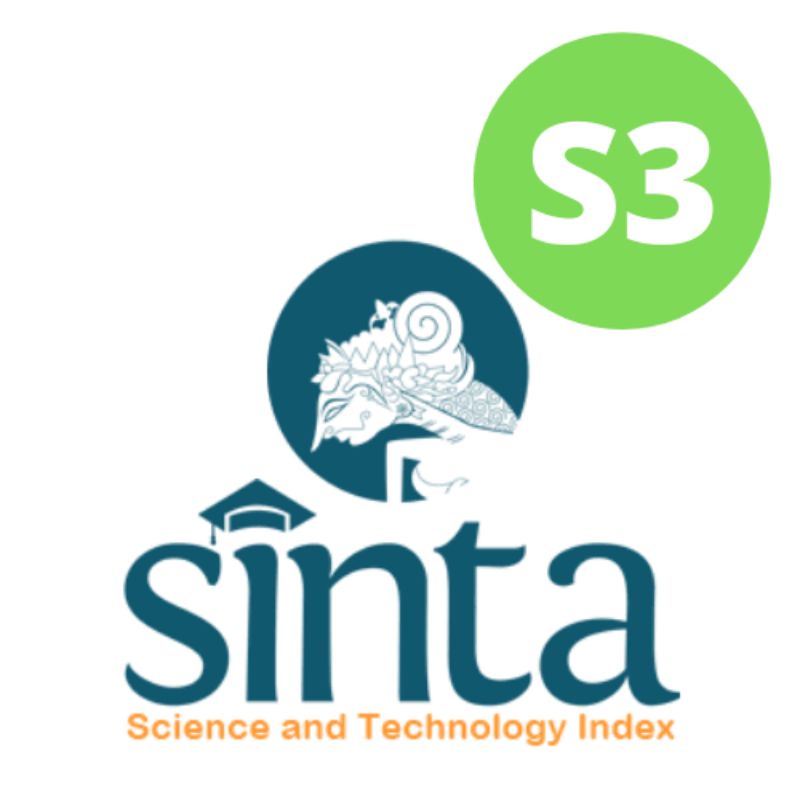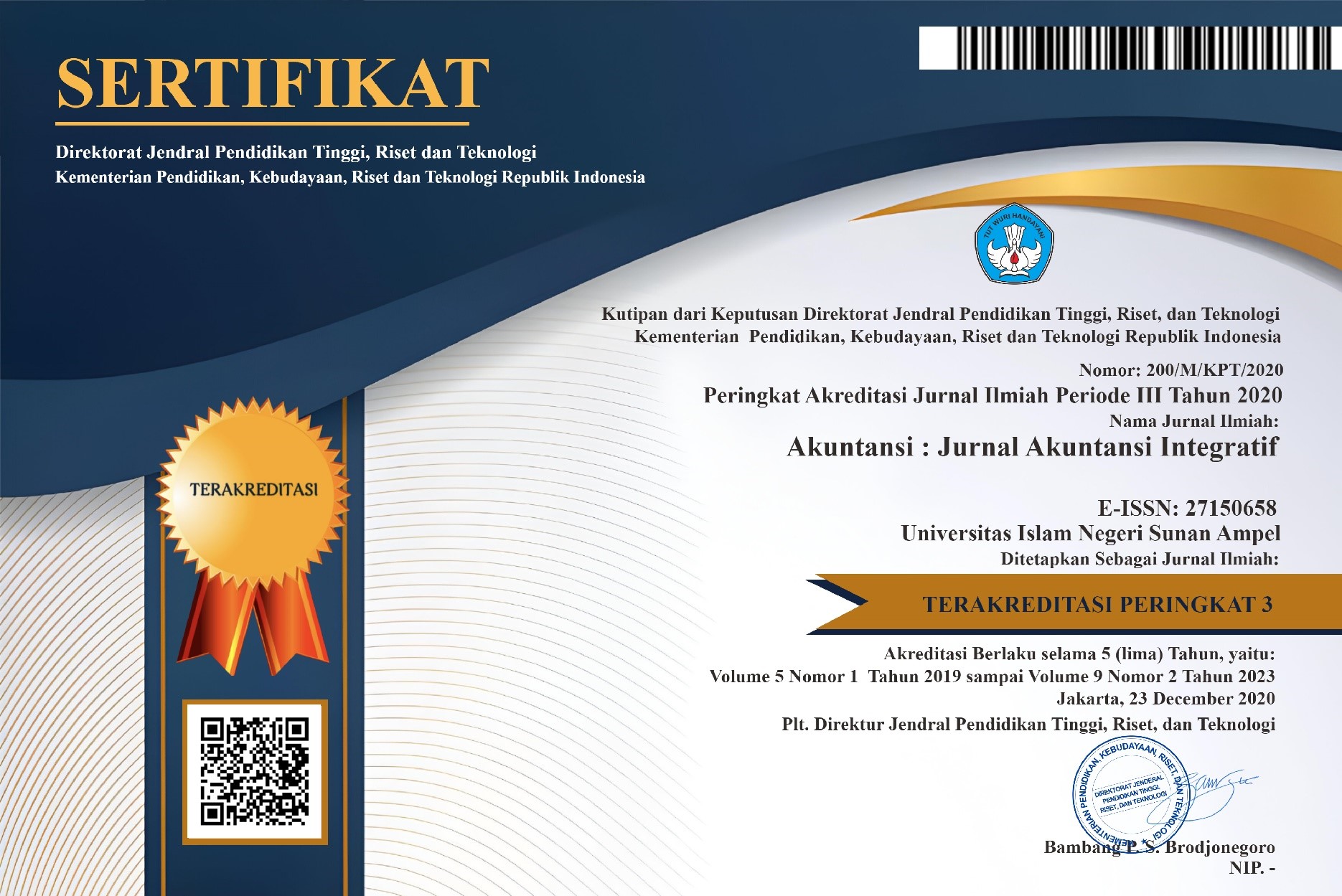Refleksi Standar Akuntansi Pemerintah dalam Manifestasi Good Governance
DOI:
https://doi.org/10.29080/jai.v8i2.1068Keywords:
Government Accounting Standards, Human Resources Competence, Good GovernanceAbstract
This study aims to understand the implementation of government accounting standards in realizing good governance in Gunung Anyar District, Surabaya in terms of human resource competence. The research material consists of the characteristics of accrual-based financial statements, as well as the principles of good governance. This research is a qualitative research. Data collection techniques were carried out by observation, interviews and documentation studies. There were three informants selected, namely the sub-district head, the general and staffing section, and the finance section. An interpretive approach is used to describe a deep understanding of the process of government accounting standards in terms of the competence of its human resources to realize good governance in Gunung Anyar District, Surabaya. The results of this study are that in general accrual basis government accounting standards have been carried out well although in some cases further improvements and improvements are needed. The educational background of the human resources who carry out the accrual basis process, namely the KA Sub Division of Finance, is not appropriate, and it can be said that transparency is due to the fact that financial performance can be accessed via the internet. So that the public knows clearly about the financial statements.
Downloads
References
Amelia, D., & Halim, A. (2021). Evaluasi Sistem Pengendalian Intern Pemerintah (SPIP) Pada Penyusunan Laporan Keuangan di Dinas Perindustrian dan Perdagangan Kabupaten Sleman. BAJ (Behavioral Accounting Journal). Vol. 4, No. 1, Juni 2021. 323-336.
Basri, Y. M., Gusnardi., & Yasni, H. (2021). Government Budget Absorption: A Study on The Reallocation and Refocus of The COVID-19 Budget. JIA (Jurnal Ilmiah Akuntansi. 317-337.
Belinda, P. A., & Costari, N., Pentingnya Implementasi Akuntansi Sektor Publik Dalam Suatu Instansi Pemerintahan. Jurnal Mahasiswa Akuntansi Unita. Vo. 1, no. 1 Tahun 2021. 58-77.
Buhr, N. (2010). From Cash to Accrual and Domestic to International Government Accounting Standard Setting in Last 30 Years. Makalah Disajikan pada Sixth Accounting History International Conference, Welington. 19 Agustus.
Dewi, Y. A., Nasfi., & Yuliza, M. (2021). Internal Control System, Utilization Of Accounting Information Technology, On Village Fund Management Accountability. International Journal of Economics, Business and Accounting Research (IJEBAR). Vol 5, Issue 1, 2021. 190-203.
Halim, A. (2018). Akuntansi Sektor Publik. Jakarta: Salemba Empat.
Junjunan, M. I., Asegaf, M. M., & Takwil, M. (2020). Pengaruh Transparansi,
Akuntabilitas, Dan IGCG Terhadap Tingkat Kepercayaan Muzakki di Lembaga Amil Zakat Dompet Amanah Umat. Jurnal Akuntansi Integratif. Vol. 6 No. 2 Tahun 2020. 112-125.
Juwita, R. (2013). Pengaruh Implementasi Standar Akuntansi Pemerintahan dan Sistem Informasi Akuntansi Terhadap Kualitas Laporan Keuangan. Trikonomika. ISSN 1411-514X Volume 12, No. 2, Desember 2013, Hal. 201–214.
Kristiawati, E. (2015). Faktor–Faktor Yang Mempengaruhi Keberhasilan Penerapan Akuntansi Berbasis Akrual Pada Pemerintah Daerah Kalimantan Barat. AKUNTABILITAS. Vol. VIII No 3, Desember 2015 P-ISSN: 1979-858X Halaman 171 – 190.
Lamonisi, S. (2016). Analisis Penerapan Standar Akuntansi Berbasis Akrual Pada Pemerintah Kota Tomohon. Jurnal EMBA. ISSN 2303-1174 Vol.4 No.1 Maret 2016, Hal. 223-230.
Maharani, D. N., & Akbar, F. S. (2020). Penerapan Sistem Keuangan Desa (SISKEUDES) Dalam Mewujudkan Akuntabilitas Pemerintahan Desa. Behavioral Accounting Journal. Vol. 3, No. 1, Juni 2020. 1-20
Manossoh, H. (2015). Implementasi Sistem Akuntansi Pemerintahan Dalam Mewujudkan Good Goverment Governance Pada Pemerintah Provinsi Sulawesi Utara. Jurnal Berkala Ilmiah Efisiensi. Volume 15 No. 05 Tahun 2015.
Mardiasmo. (2010). Akuntansi Sektor Publik. Yogyakarta: ANDI.
Moleong, L. J. (2011). Metodologi Penelitian Kualitatif. Bandung: PT. Remaja Rosdakarya.
Putra, S. A., & Varina, R. J. (2021). Implementasi Standar Akuntansi Pemerintahan Berbasis Akrual dalam Penyusunan Laporan Keuangan Daerah Kota Bengkulu Provinsi Bengkulu. Jurnal Terapan Pemerintahan Minagkabau. Vol. 1, No. 2, Edisi Juli – Desember 2021.
Rizky, H. P., & Setiawan, D. (2019). Perkembangan Penelitian Akuntansi Sektor Publik di Indonesia. Jurnal Akuntansi dan Pendidikan. Vol. 8 No. 2 Oktober 2019. 94-116.
Sedarmayanti. (2012). Good Governance “Kepemerintahan Yang Baik” & Good Corporate Governance “Tata Kelola Perusahaan yang Baik”, Bagian ketiga, Edisi Revisi. Bandung: CV. Mandar Maju.
Singkali, O. Y. F., & Widuri, R. (2014). Penerapan Standar Akuntansi Pemerintahan Pada Dinas Pendapatan Dan Pengelolaan Keuangan Aset Daerah (DPPKAD) Kabupaten Toraja Utara. TAX & ACCOUNTING REVIEW. VOL 4, NO 2, 2014.
Sutrisno, E. (2012). Manajemen Sumber Daya Manusia. Jakarta: Kencana.
Triyono., Achyani, F., & Arfiansyah, M. A. (2019). The Determinant Accountability of Village Funds Management (Study in The Villages in Wonogiri District). Jurnal Riset Akuntansi dan Keuangan Indonesia (REAKSI). Vol. 4 No. 2 September 2019. 118-135.
Downloads
Published
How to Cite
Issue
Section
License
Copyright (c) 2023 Nufaisa, Ade Irma Suryani Lating, Mohammad Dliyaul Muflihin

This work is licensed under a Creative Commons Attribution-ShareAlike 4.0 International License.









